
SEAMESTER VII – Meet the students and learners on the voyage
Read more about the Students an learners here

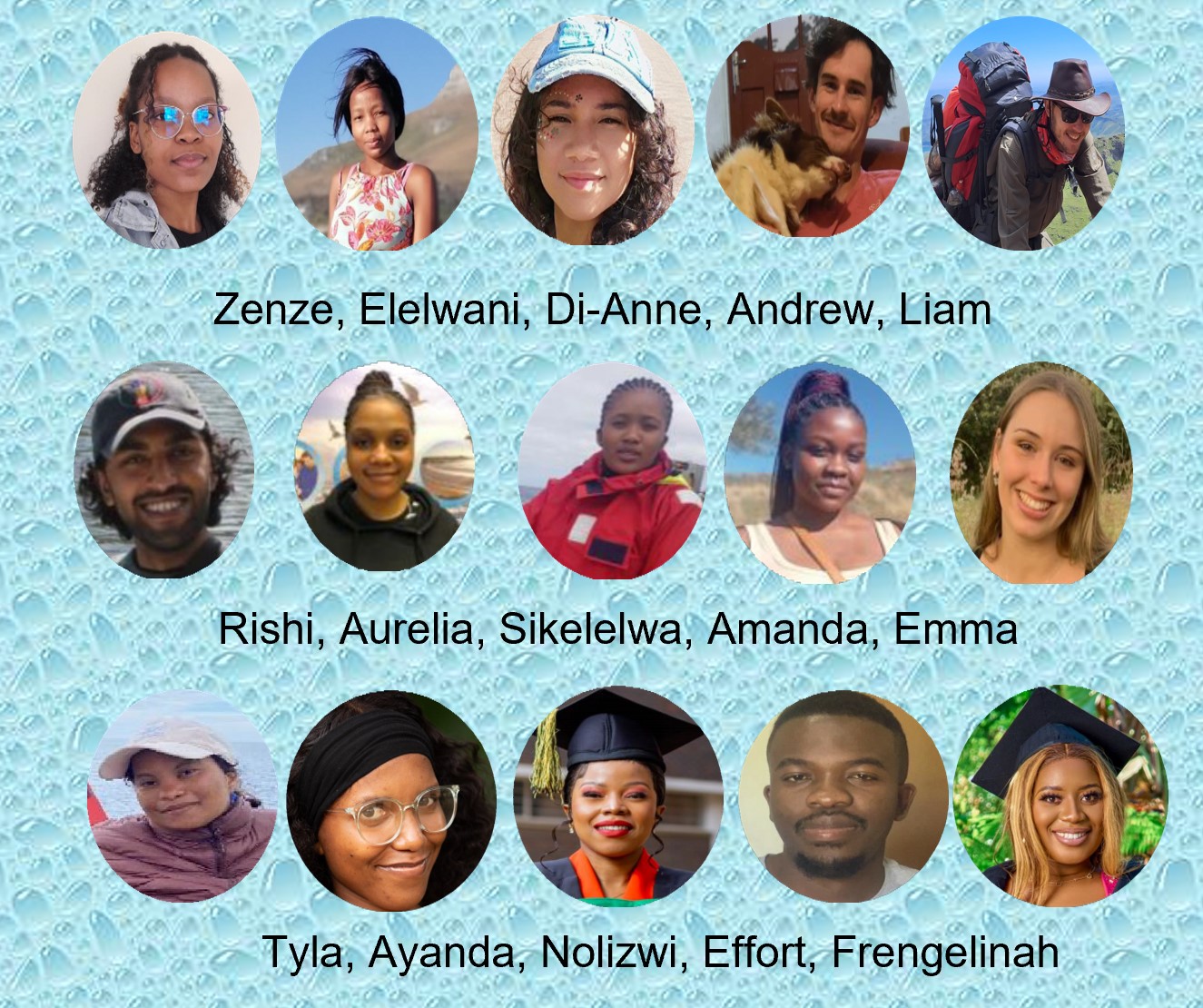
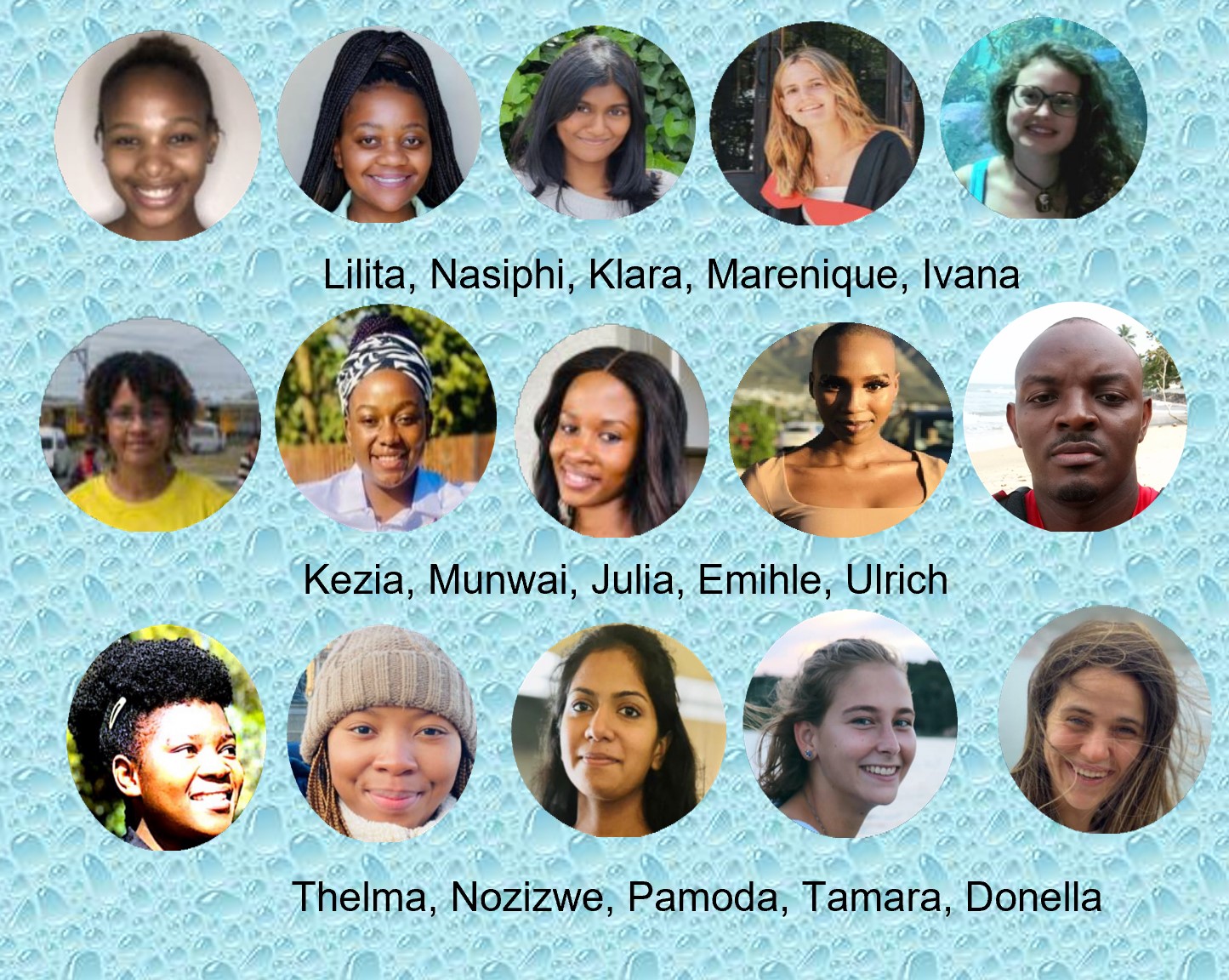
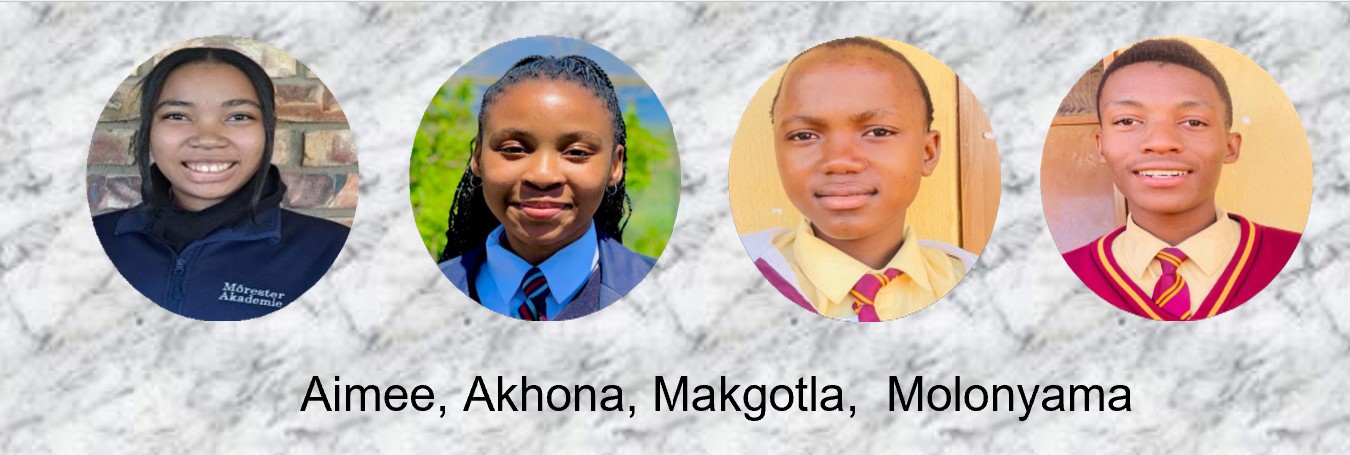

Read more about the Students an learners here





SEAMESTER VII departed last Tuesday from East Pier in Cape Town and is now in the Southern Ocean. Introducing the lecturers on board. available here







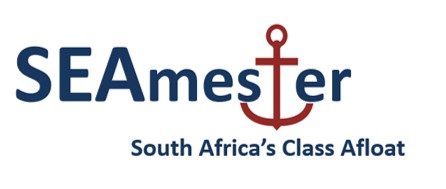 The UN’s Decade of Ocean Science calls for programmes that improve scientific knowledge, develop research capacities and transfer marine technological information and expertise across generations. In South Africa, the Department of Science and Innovation’s (DSI) has already taken a significant step forward in such training measures. The current DSI Global Change Grand Challenge programme1 calls for platforms that “attract young researchers and retain them by exciting their interest in aspects of global change, while developing their capacity and professional skills in the relevant fields of investigation”. To meet these challenges in the Ocean Sciences, SEAmester – South Africa’s Floating University and a joint initiative between Government and Universities was started in 2016. The strength of SEAmester is that South African postgraduate students combine theoretical classroom learning with the application of this knowledge through ship-based, and more importantly, hands-on research through the Agulhas System Climate Array (ASCA) programme.
The UN’s Decade of Ocean Science calls for programmes that improve scientific knowledge, develop research capacities and transfer marine technological information and expertise across generations. In South Africa, the Department of Science and Innovation’s (DSI) has already taken a significant step forward in such training measures. The current DSI Global Change Grand Challenge programme1 calls for platforms that “attract young researchers and retain them by exciting their interest in aspects of global change, while developing their capacity and professional skills in the relevant fields of investigation”. To meet these challenges in the Ocean Sciences, SEAmester – South Africa’s Floating University and a joint initiative between Government and Universities was started in 2016. The strength of SEAmester is that South African postgraduate students combine theoretical classroom learning with the application of this knowledge through ship-based, and more importantly, hands-on research through the Agulhas System Climate Array (ASCA) programme.
 The mid-term goal of SEAmester is to attract and establish a cohort of proficient marine and atmospheric science graduates who will contribute to filling the capacity needs of South African marine science. Furthermore, by involving researchers from across all the relevant disciplines and tertiary institutions in South Africa, SEAmester provides an opportunity to continue building a network of collaborative teaching within the marine field. In doing so, these researchers will foster and strengthen new and current collaborations between historically white and black universities. A core aim of SEAmester will be to transform the number of numerate postgraduate students entering the marine sciences. Within South Africa there continues to be an urgent need to redress the demography of scientists involved in oceanographic research, which remains skewed towards white South Africans. SEAmester has already proven to be extremely effective in responding to these challenges. Since its inception in 2016, over 120 male and 140 female students from 26 tertiary institutes, have been trained onboard the SA Agulhas II. With 64% of the enrolled students being black South African and from previously disadvantaged universities . Greater awareness of the ocean’s physical, biogeochemical and ecological response to climate change, highlighted through ship-board experiences, has already started to inspire and attract students into the marine sciences. This is a critical step if a new generation of marine scientists with a far higher calibre in the sciences are to be trained. Most importantly, SEAmester has already created opportunities for students from all social backgrounds to experience working life at sea. By achieving a more quantitative and experienced input into our postgraduate pipeline, we will, as a scientific community, greatly improve our long-term capabilities to accurately measure, model and predict the impacts of current climate change scenarios. We fully expect this to continue and to ensure that students who excel in numeracy, despite diverse economic, educational, ethnic and social backgrounds, are aware, have equal access to the benefits and opportunities afforded through this programme.
The mid-term goal of SEAmester is to attract and establish a cohort of proficient marine and atmospheric science graduates who will contribute to filling the capacity needs of South African marine science. Furthermore, by involving researchers from across all the relevant disciplines and tertiary institutions in South Africa, SEAmester provides an opportunity to continue building a network of collaborative teaching within the marine field. In doing so, these researchers will foster and strengthen new and current collaborations between historically white and black universities. A core aim of SEAmester will be to transform the number of numerate postgraduate students entering the marine sciences. Within South Africa there continues to be an urgent need to redress the demography of scientists involved in oceanographic research, which remains skewed towards white South Africans. SEAmester has already proven to be extremely effective in responding to these challenges. Since its inception in 2016, over 120 male and 140 female students from 26 tertiary institutes, have been trained onboard the SA Agulhas II. With 64% of the enrolled students being black South African and from previously disadvantaged universities . Greater awareness of the ocean’s physical, biogeochemical and ecological response to climate change, highlighted through ship-board experiences, has already started to inspire and attract students into the marine sciences. This is a critical step if a new generation of marine scientists with a far higher calibre in the sciences are to be trained. Most importantly, SEAmester has already created opportunities for students from all social backgrounds to experience working life at sea. By achieving a more quantitative and experienced input into our postgraduate pipeline, we will, as a scientific community, greatly improve our long-term capabilities to accurately measure, model and predict the impacts of current climate change scenarios. We fully expect this to continue and to ensure that students who excel in numeracy, despite diverse economic, educational, ethnic and social backgrounds, are aware, have equal access to the benefits and opportunities afforded through this programme.
A long-term vision is to develop SEAmester into an international educational flagship programme incorporating a wider participant and scientist list with the involvement of other SADC countries. The success of the past 6 cruises onboard the SA Agulhas II has confirmed to the scientific community that SEAmester – South Africa’s Floating University – is able to achieve just that.
Text Supplied by Prof Isabelle Ansorge
Feature image by Katherine Hutchinson
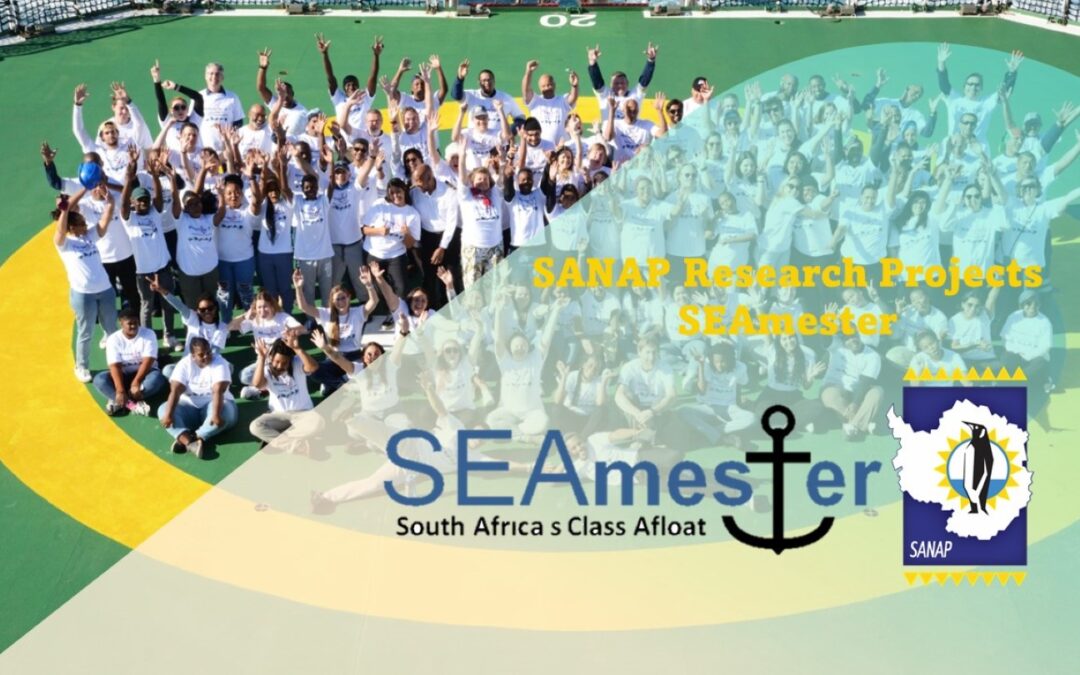
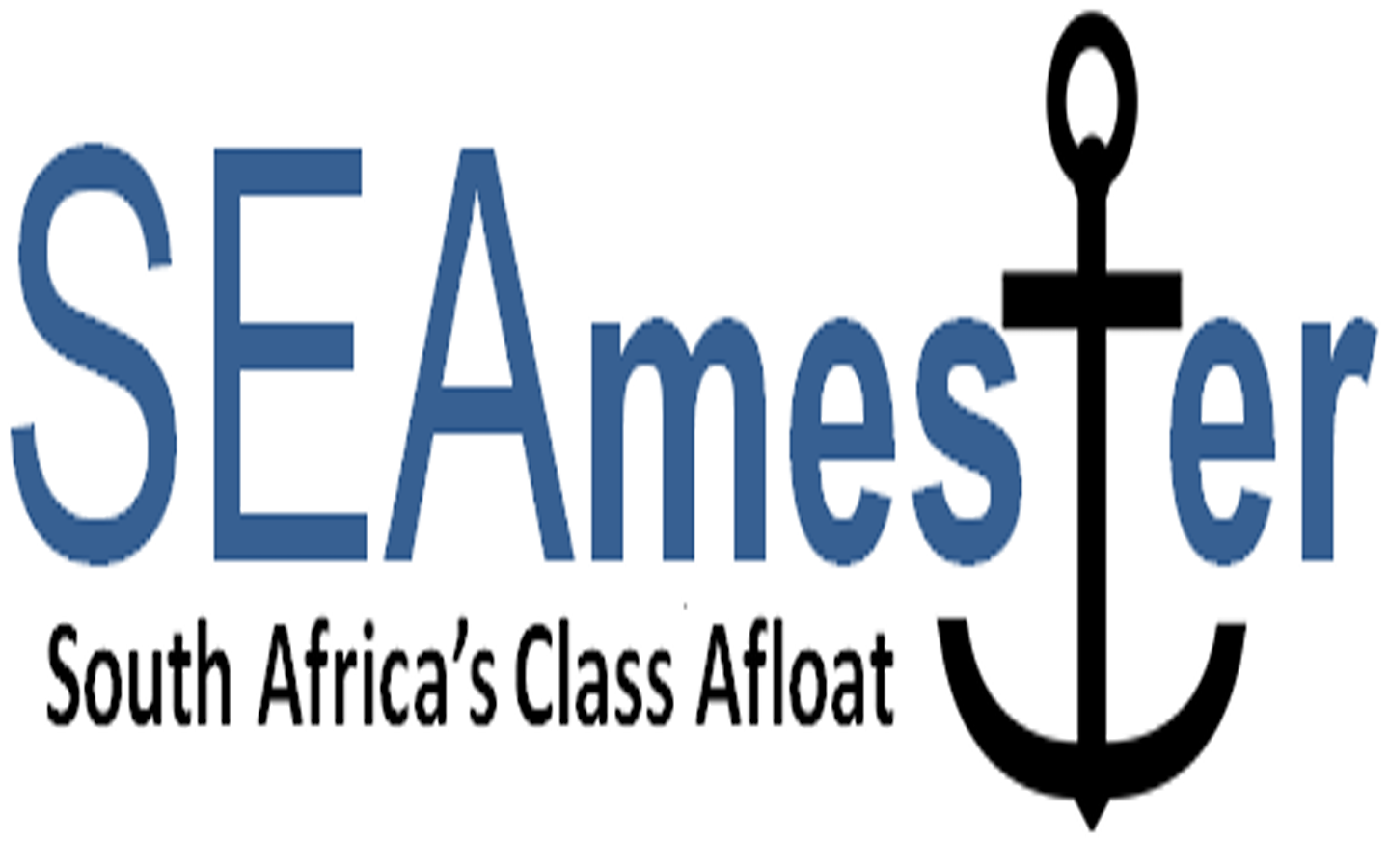 Training Tomorrow’s Oceanographers
Training Tomorrow’s OceanographersSEAmester’s success is evident in the academic achievements of its participants. A total of 254 students from over 26 institutes and universities have participated in the program, gaining comprehensive knowledge in oceanography, marine biology, atmospheric forecasting and navigation. The curriculum, developed in collaboration with leading marine scientists and lecturers across South Africa, ensures a balance between theoretical concepts and practical training of skills. SEAmester participants have contributed to several news publications, presenting their findings at national and international (SANAP 2023, IUGG 2023, @SEAnetwork 2022, VC award Ocean Womxn) conferences and workshops.
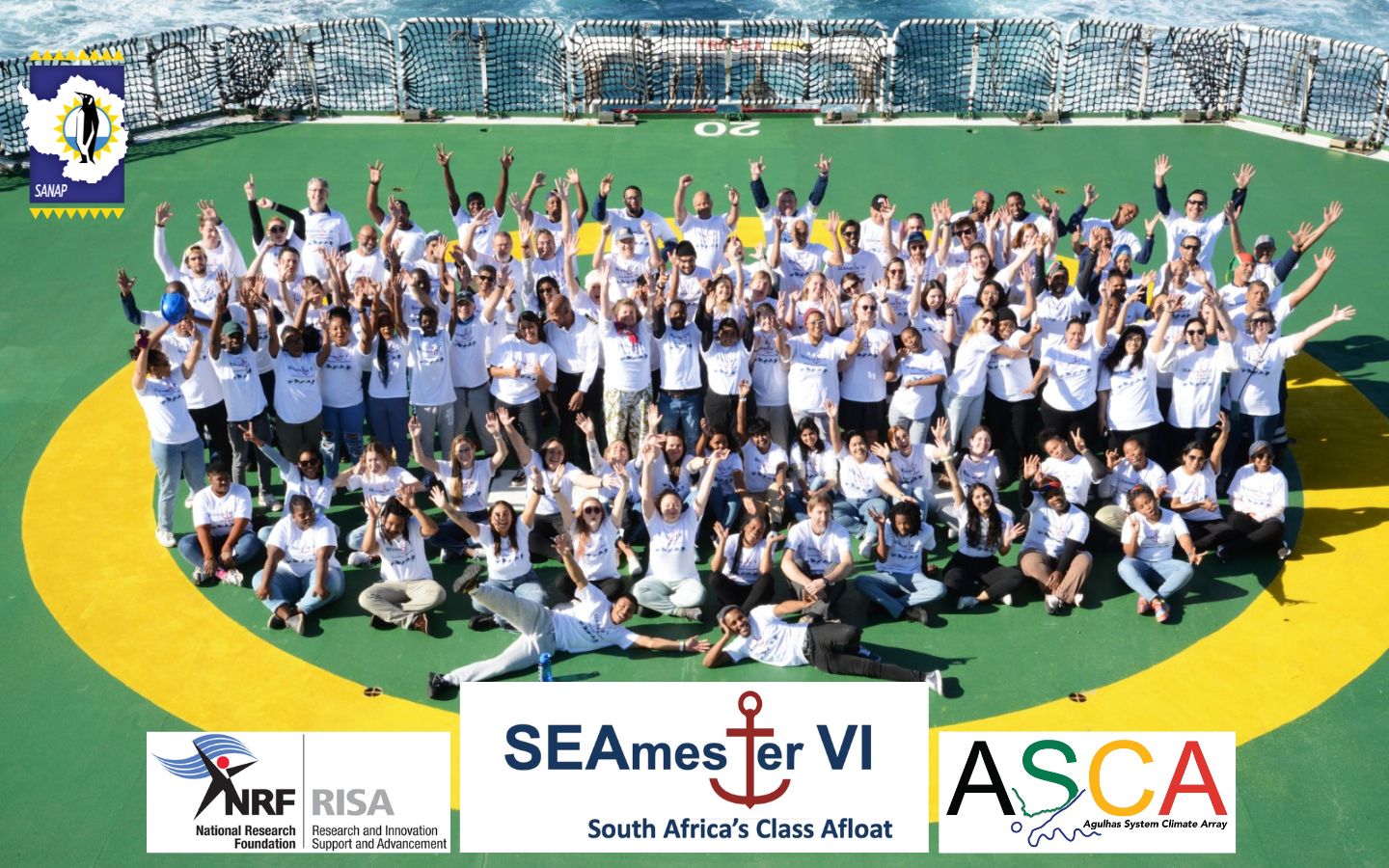 The program’s emphasis on research skills and scientific inquiry has empowered students to continue to make meaningful contributions to the field of marine science. Graduates of SEAmester have gone on to pursue advanced degrees and have secured positions in reputable research institutions, environmental organizations, and marine industries. The alumni network continues to grow, fostering collaboration and knowledge exchange between the cohort of SEAmester students. SEAmester’s success is further exemplified by the growing number of partnerships with academic institutions. Collaborative research projects, joint degree programs, and faculty exchanges have strengthened ties between SEAmester and leading universities in South Africa. International Collaborations: SEAmester is actively exploring partnerships with renowned international institutions to enhance the global reach of its educational offerings. Collaborative research projects and student exchanges will further enrich the program’s diversity and perspective. (Above SEAmester 2023)
The program’s emphasis on research skills and scientific inquiry has empowered students to continue to make meaningful contributions to the field of marine science. Graduates of SEAmester have gone on to pursue advanced degrees and have secured positions in reputable research institutions, environmental organizations, and marine industries. The alumni network continues to grow, fostering collaboration and knowledge exchange between the cohort of SEAmester students. SEAmester’s success is further exemplified by the growing number of partnerships with academic institutions. Collaborative research projects, joint degree programs, and faculty exchanges have strengthened ties between SEAmester and leading universities in South Africa. International Collaborations: SEAmester is actively exploring partnerships with renowned international institutions to enhance the global reach of its educational offerings. Collaborative research projects and student exchanges will further enrich the program’s diversity and perspective. (Above SEAmester 2023)
 As the field of ocean science evolves, SEAmester is committed to incorporating emerging disciplines such as marine robotics, climate science, and biotechnology into its curriculum. This ensures that students are well-prepared for the challenges and opportunities of the future direction and foci of marine sciences. Recognizing the importance of accessibility, SEAmester continues to develop and teach digital learning/mapping/visual platforms to complement its on-board training.
As the field of ocean science evolves, SEAmester is committed to incorporating emerging disciplines such as marine robotics, climate science, and biotechnology into its curriculum. This ensures that students are well-prepared for the challenges and opportunities of the future direction and foci of marine sciences. Recognizing the importance of accessibility, SEAmester continues to develop and teach digital learning/mapping/visual platforms to complement its on-board training.
Below examples of the many articles and presentations coming out of the programme…
A report which is a poll of all 6 SEAmester student cohorts on the importance of their SEAmester experience in shaping their studies, career trajectory etc. will be published soon.
IMAGES available on ALSA archive
Text by Isabelle Ansorge.
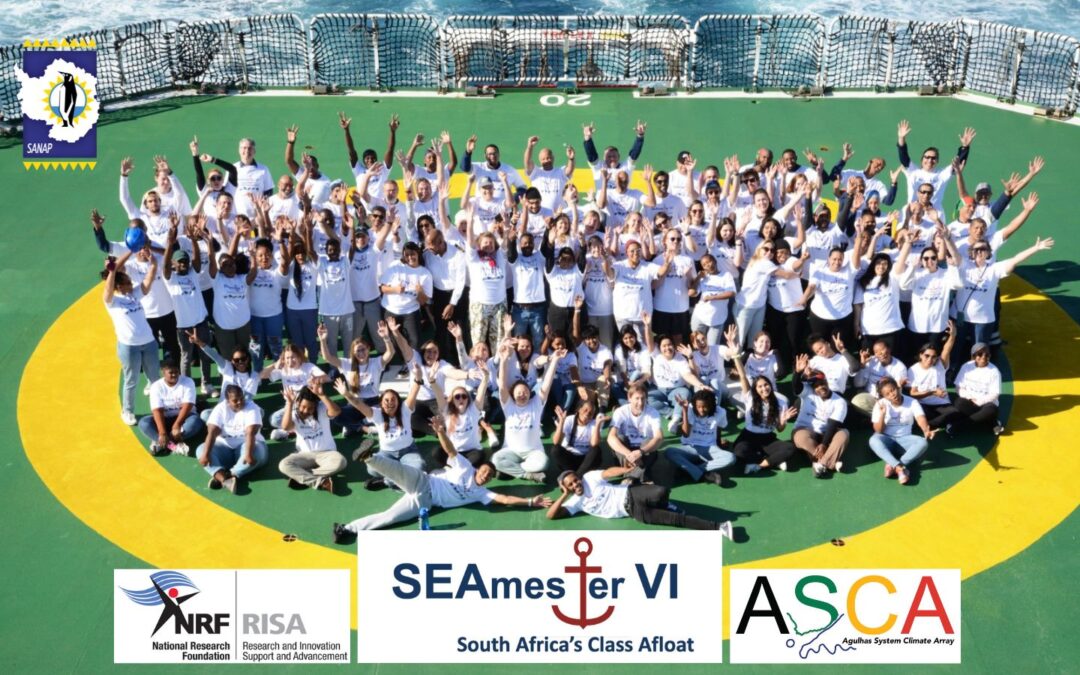
SEAmester – South Africa’s Class Afloat in association with the Agulhas System Climate Array (ASCA).
June 2023 saw the success of the 6th SEAmester expedition, a programme aimed at accelerating marine science as an applied and cross-disciplinary field to postgraduate students all over South Africa. Forty-seven science students from institutions across the country made it through the programme and participated in the SEAmester ten-day at-sea practical training course aboard the flagship South African research vessel, S.A. Agulhas II. The programme was led by Prof. Isabelle Ansorge, head of the Department for Oceanography at the University of Cape Town (UCT) and initiator of the programme; and coordinated by Tahlia Henry.
SEAmester is a programme initiated to meet the Department of Science and Innovation (DSI) objectives of creating platforms to “attract young researchers to the region and retain them by exciting their interest in aspects of global change”. SEAmester introduces marine science as an applied and cross-disciplinary field to students. The strength of SEAmester is that postgraduate students combine theoretical classroom learning with the application of this knowledge through ship-based and hands-on research.
SEAmester was undertaken in collaboration with ASCA, a science project spearheaded by DSI and the South African Environmental Observation Network (SAEON), Egagasini Node. ASCA is a multi-institutional, international collaboration, whose objectives are to determine how the Agulhas Current and its role in the global conveyor belt varies over time by providing the first long-term observations of Agulhas Current volume, heat and salt transport and its variability through seasonal to interannual timescales. To read more about ASCA click here.
Since ASCA provides a large, international programme performing ground-breaking science, and is also being used as a training platform for students, interns and junior staff, teaming SEAmester with ASCA makes an excellent match, one that has worked successfully for all SEAmester expeditions to date.
Students taking photos and soaking in the views as they bid farewell to Cape Town en route to the expedition.
Setting sail
The S.A .Agulhas II voyaged from East Pier, Cape Town on 20 June 2023 to the Agulhas Current, off East London, and docked back in Cape Town on 29 June 2023. The expedition involves running a transect across the core of the Agulhas Current off Port St Johns. The SEAmester VI expedition encompassed a group of forty-three postgraduate students from various Higher Education Institutions (HEIs) across the country (both inland and along the coast), including, two high school learners from the Northwest School, and two junior scientists from Anchor Environmental Consultants, as part of expending its network and reach.
The first two days of the voyage en route to the ASCA transect gave all on board a chance to settle in and combat their seasickness. Among the bird, mammal and weather observations along the way, the students managed to get further acquainted with life at sea.
SEAmester VI Activities
The students were divided into two module steams, “Tools of the Trade” and “Oceans in a Changing Climate”. Oceans in a Changing Climate focuses on the biological aspect of the ocean, the role of the ocean as a carbon source and carbon sink, the interconnectivity of the ocean with the atmosphere and how it affects life in the sea. Tools of the Trade focuses on various methods of measuring the physical properties of the ocean, using an assortment of instrumentation each comprising highly expensive sensors.
Learning comprised of daily class-room lectures, daily assignments and deck work – running in parallel to the ASCA programme. Students from both streams provided research support to specialist scientists and obtained daily hands-on deck training, data collection, sampling and data analysis. Each student gained experience working with the full suite of oceanographic, atmospheric and biological ship-based instrumentation such as CTD, underway measurements and autonomous devices such as Argo, SVP drifters, as well as experience on biological net tows. Training on data analysis following each dedicated SEAmester CTD station was provided, as well as technical and electronic experience in calibrating and modifying each instrument. In addition, a third stream is offered to all students which is the “Art” stream, this allows students to be creative in tasks such as tiled mosaics, photography, and documenting their cruise through journals and film-making. The students also had to work on a specific scientific mini-project related to their area of interest and the scientific research underway.
The spectrum of lectures included Introduction to Physical Oceanography, Microbiology and DNA, Benthic Environment, Oxygen and Nutrients, Molluscs, Seals and Dissections, Micro-plastics, Blue Economy, Oil spills, Maritime Archaeology, Hydrography, GIS Mapping, Film, Photography, Astronomy, Engineering, Acoustics, and Phytoplankton; presented by highly skilled lecturers and professionals from South Africa’s HEIs and organisations alike.
SEAmester VI Takeaways
The jam-packed SEAmester and ASCA operations ran smoothly with no issues to report for the entire expedition. The students were dedicated and rose to the challenge and completed their projects timeously. The programme came to an end on the morning of the 29th of June after the students showcased their SEAmester movies about their journey and received their completion of the programme certificates. The students were then treated to a cake by the SA Agulhas II crew. An art exhibition and farewell gathering was held the night before, where students reflected on their journey and the expedition, expressing that SEAmester has been rewarding both educationally and in terms of the network and connections they made. A social braai and themed party were held on one of the last nights, during this time, all the students and staff came together to unwind after all the tasks had been submitted.
With that said, the biggest success of SEAmester remains to be its ability to break down social, cultural, economical, and racial barriers between students and in doing so build the next generation of integrated marine scientists in South Africa.
SEAmester-South Africa’s Floating University is a NRF-SANAP funded project. Click on the link below to view all the current NRF-SANAP funded projects.
Featured Image credit: Associate Professor Svea Josephy, Fine Art (photography) at the Michaelis School of Fine Art, University of Cape Town.
Images: Rabia Mathakutha, South African Polar Research Infrastructure; Megan Maroen, Stellenbosch University.
Rabia Mathakutha, South African Polar Research Infrastructure, 26 July 2023.
East Pier Shed, East Pier Lane,
V&A Waterfront, Cape Town,
South Africa